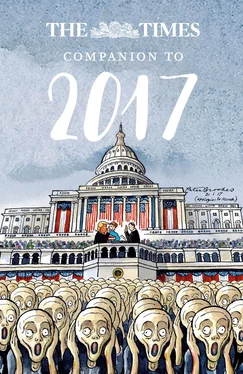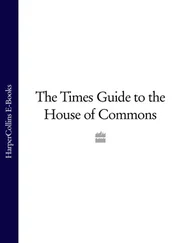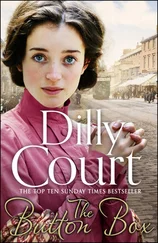Fifteen years earlier, at the peak of Japan’s inflated “bubble economy”, a bright graduate such as Yokote would have been eagerly snapped up by a big Japanese company; now they were cutting recruitment to save the jobs of existing employees.
There are other factors that have given rise to the virgin generation, according to Yamada, among them the ease and availability of internet pornography. The decline of traditional matchmakers, who used to arrange unions between young single people, has also played its part, as has the habit among young Japanese of socialising in groups, making it harder for men and women to break off as couples.
A great deal of the problem, he believes, simply comes down to money — for restaurants, entertainment, presents and the other accoutrements of romance, but also to establish a life of self-respect and independence. Eighty per cent of single Japanese live with their parents; Yamada’s research shows that while salaries among male workers have declined, women’s expectations of income in a potential mate remain unrealistically high.
“The physical aspect of sex is not the problem,” says Shingo Sakatsume, who more than anyone else is tackling Japan’s virginity crisis head on. “Most people, once they get to that point, can work out that for themselves. It’s the social part that is most difficult.” Sakatsume is a social worker and the founder of Virgin Academia, a correspondence course for unwilling celibates. It originated in his specialised work providing counselling on sexual matters to people with disabilities. He quickly recognised that a large number of the able-bodied also needed help.
The year-long course is based on his textbook Virgin Breaker , which attempts to guide its students towards “graduation” from their virginity. Students follow the book, write essays based on its contents and correspond with Sakatsume by email (most are too shy to meet in person). Month by month Sakatsume attempts to build their confidence, encourages them to create opportunities to meet potential mates and guides them through the niceties of online dating. In three years, 40 people aged 20 to 42, all of them men, have taken the £400 course. Only six have successfully graduated. “It’s hard to get past the first step,” Sakatsume admits. “Some of these men get to the end of the year and they still haven’t signed up to a dating site.”
His organisation, White Hands, also organises life classes in which naked models, male and female, pose for an audience of virgins with paints and pencils. The point is to show real human bodies to people whose only experience of them may have been the stylised and aggressive universe of online porn. Yokote went to one and was mesmerised. “Each body was different,” he said. “Each one had such beauty. I had never seen a naked woman before. It gave me the impression of such freshness and such life.”
Inspired by the experience, Yokote has made a conscious effort to seek out more opportunities to meet women, and to open up — with a certain, hesitant success. A friend introduced him to a woman he likes very much; they meet as often as once a week. “I don’t yet have the confidence to say that we are dating,” he says, “but I am very fond of her and I want to see more of her. The first time we met, I told her that I was a virgin. I felt I could be so honest with her and it seemed very natural to talk about it.” How did she respond? “She said, ‘You could practise with me.’”
ROYAL FAMILY ARE MORE SECRETIVE THAN MI5
Ben Macintyre
OCTOBER 29 2016
A VAST SPLURGE of royal history is coming our way with the release next week of The Crown , the dramatised story of the Queen from her wedding to the present day. Spanning six seasons, in 60 episodes, it is the single biggest and most expensive bio-epic ever made.
Yet it is an incomplete story because the royal archives remain closed to the public, accessible only to approved scholars, rigorously controlled by unaccountable royal archivists: a glaring, profoundly undemocratic anomaly in an age of supposed openness.
MI5 now regularly reviews and releases its files to the national archives; the royal family feels no such obligation. The most prominent family in the world remains more secretive about its past than the Security Service.
Held in the Round Tower at Windsor Castle, the royal archives consist of more than two million documents covering 250 years of royal history. “The Royal Household is committed to transparency,” declares the royal website, “and to making information available, where appropriate.” The royal household alone defines what is “appropriate”.
For decades, academics have chafed against the way the archive is run, which allows only selected scholars access to certain parts of the collection, and suppresses royal history that might reflect badly on the institution of monarchy. There is no publicly accessible catalogue, so researchers can only request files already identified in the footnotes of works by “authorised” writers. Fishing without a permit in royal historical waters is strictly forbidden.
This restricted access is justified by royalists on the grounds that this is a private archive and that the royals have a right to defend their privacy like any other family. The royal household is not defined as a public body, and therefore is not obliged to release its files under the 2000 Freedom of Information Act.
Therein lies the central ambiguity of the Queen’s position, being at once a constitutional figure and a private person. The monarchy infused and deeply influenced British public life throughout the 20th century, most emphatically in its first half. Successive monarchs and other members of the royal family have played crucial political roles in our past.
The history of the royals is also the history of Britain, and it belongs to the British people; what the royals regard as their history is truly ours and of overwhelming public interest. The royal household has never seen the archive that way, and the story of the sometimes stumbling royal progress through the 20th century has been heavily edited by the royals themselves.
“I am much against destroying important letters,” wrote Queen Victoria, yet ordered her youngest daughter Beatrice to rewrite her journal, deleting “painful passages” and burning each original volume as she went. Virtually all the private papers of Edward VII were burnt on the orders of Queen Alexandra. Princess Margaret destroyed hundreds of letters collected by the Queen Mother.
However, there is still much inside those archives that should be fully opened to the light of scholarship. They undoubtedly contain revealing information on Prince John, George V’s mentally disabled and epileptic youngest son, who was removed to a farm on the Sandringham estate and died young. Similarly, papers relating to Edward and Mrs Simpson and the abdication crisis remain inaccessible to the public.
The most controversial part of the archive, though, relates to the interwar years, when members of the royal family, in common with others of the British ruling class, were great admirers of Hitler. Some of the more embarrassing material is believed to have been filleted out and destroyed in 1945, but undoubtedly a great deal survives that would elucidate, once and for all, the complex relationship between the royals and the Third Reich, a key to understanding British foreign policy in the run-up to war.
The royal family needs to take a leaf out of MI5’s book and open up its past to public scrutiny. In the wake of the Spycatcher scandal, the Security Service came to the realisation that excessive secrecy was damaging its credibility. In the absence of documentary evidence, historians were forced to rely on snippets of gossip and rumour, occasional explosions of scandal and the semi-reliable accounts of disgruntled former employees. (These are precisely the same sort of sources that tend to inform royal stories.)
Читать дальше












